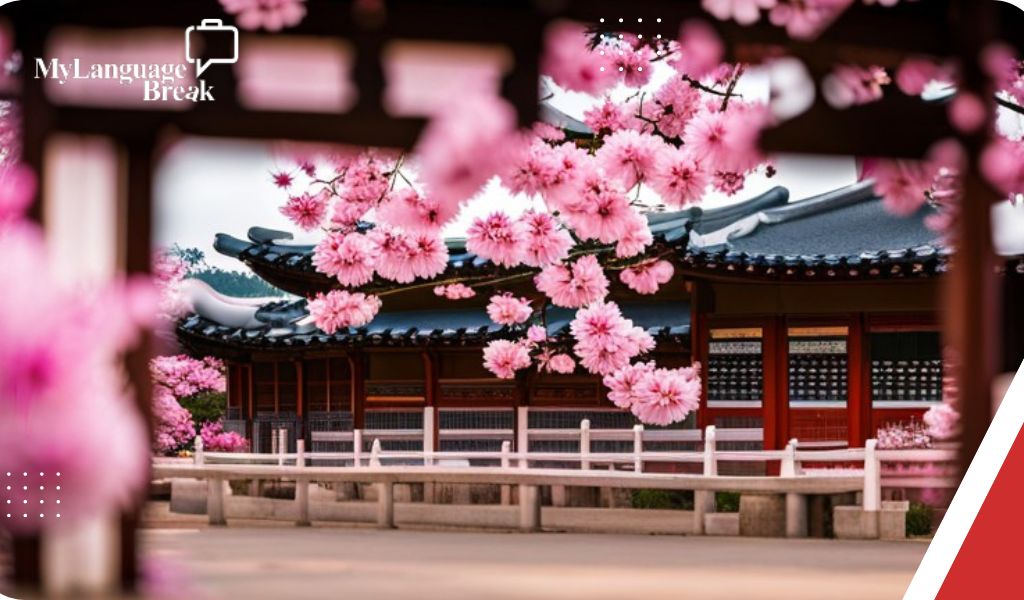Are you interested in learning Korean, but don’t know where to start? Fear not because we have compiled a list of 10 easy ways for you to get started!
Even if you are a complete beginner, with these tips you will be on your way to speaking the language like a pro. So, what are you waiting for? Start learning Korean today.

Why learn Korean?
With 75 million speakers and a beautiful language, it’s really useful to know how to speak the locals’ dialect.
Korean has a relatively simple grammar structure and a small alphabet. It is also considered one of the most logical languages, making it easy to pick up. And once you start learning, you’ll be surprised at how quickly you progress.
So now that we’ve convinced you to start learning Korean, let’s take a look at the easiest ways to do it.
Learn Korean Hangul
Korean learners should start out by learning how to read and write Hangul. It’s an easy way for those who want a challenge because it is different from the Latin alphabet we are all familiar with.
The first step towards mastering this new system of writing? Learn what each symbol means, so you can get started practicing your reading skills right away – there are plenty more opportunities ahead that will help take off pounds (or kilos) once they’ve been learned well enough.
Start with the basics and then move on to more difficult concepts.
Learning Korean is easy with Hangul. Hangul makes it faster and more convenient than Romanized Korea, so get rid of your old habit for good!
Some people recommend starting with Hangul because it is simple and straightforward. However, there are also those who argue that it’s better to wait until you’ve learned some basic phrases before starting to learn the alphabet.
To Get Fluent FASTER, Use Konglish to Smash Your Language Plateau!
Why not try out some Konglish expressions? It’s an easy way to reach fluency faster by mixing English with Korean!
You can learn words from English that end up in your native language, often through everyday speech.
For beginners, this will be helpful because they already know these words, and it makes the learning process easier on you as well since most people speak both languages anyway, so why not take advantage of what is available?
Concentrate on Korean words with a high frequency.
The 20% of your vocabulary makes up 80%. That’s why it is so important to focus on high-frequency words in order for your language learner! The Pareto principle will help guide what content we should study together because this law states that focusing only one type or category results in poor comprehension due to lack of diversity.
Learning just a few essential phrases will allow you to converse with native speakers, instead of feeling like an outsider who doesn’t understand what they are saying.
A lot of people feel overwhelmed when trying learning languages because there is so much information out in the world, and it can be hard figuring how exactly everything fits together into sentences or thoughts that make sense! But if we know some common words—even ones which might seem uncommon at first glance—then our chances for communicating effectively increases significantly.
Korean dramas and podcasts are a great way to learn the language. The most useful high-frequency phrases can be found in Korean programs, so it’s worth checking them out.
You could also listen Kpop songs for an even more immersive experience with speaking ability that will have you sounding like your favorite locals within minutes (not necessarily good ones).

Create a Korean Language Learning Schedule
The first step in learning a new language is to create an effective schedule. You should make sure that you have deadlines, like trips or exams for your target date and time range when those are coming up, so it will motivate yourself over the long run! A good goal would be 20 minutes of study every day with smaller chunks taken from other activities such as podcasts/reading etc., but this depends on what level beginner person one becomes at least a little bit more flexible.
Start with Basic Phrases
Once you have a schedule and SRS set up, it’s time to start learning some basic phrases. These are the building blocks of the language, and they will be essential in your journey to becoming fluent.
Some essential Korean phrases are:
– 안녕하세요 (Annyeonghaseyo) – \”Hello\”
– 저는 _______ 입니다 (jeoneun ______ imnida) – “My name is ______”
– 만나서 반갑습니다 (mannaseo bangapseumnida) – “Nice to meet you”
– 어떻게 지내세요? (eotteoke jinaeseyo?) — “How are you?”
– 잘 지내요 (jal jinaeyo) – “I’m doing well”
– 안녕히 가세요 (annyeonghi gaseyo) – “Goodbye”
– 감사합니다 (gamsahamnida) – “Thank you”
– 죄송합니다 (joesonghamnida) – “I’m sorry”
Learning Korean will be a breeze if you start with these high-frequency words!
Don’t be afraid to make mistakes.
One of the biggest barriers for language learners is the fear of making mistakes. We often think that we have to be perfect in order to speak a new language, but this couldn’t be further from the truth.
These phrases will come in handy in many different situations, so make sure to learn them early on.
Learn Korean on Your Own Time
Learning a new language can be expensive and time-consuming, which is why many people are looking for cheaper alternatives.
However, it’s also possible to learn languages without spending too much money. A good way of doing this would involve downloading an app like Duolingo or Babbel (or other similar software) onto your phone.
Both of these apps are free to download and use, and they’re great for learning new words and phrases. You can also find many other useful resources online that can help you with your language-learning journey.
Benefits of learning Korean
There are many reasons to learn Korean. For one, it can be a useful language for business and travel.
Korea is a major economic power, and many businesses are looking for employees who can communicate in Korean.
In addition, as a rapidly developing country, Korea is an increasingly popular tourist destination.
However, even if you don’t have any immediate plans to visit or do business in Korea, learning the language can still be beneficial.
Korean uses a different alphabet than English, it can help to broaden your horizons and improve your skills in other areas, such as critical thinking and problem-solving.
Ultimately, whether you’re looking to boost your resume or simply expand your horizons, learning Korean can be a rewarding experience.
Tips for learning Korean effectively
When beginning to learn Korean, it is important to set achievable goals for yourself. Decide how much time you are willing to devote to studying and make a commitment to stick to it. Trying to cram too much information in a short amount of time is often ineffective and can lead to frustration.
Find a method that works for you. Everyone learns differently, so it is important to find a method of study that suits your individual needs. Some people prefer colorful flashcards, while others prefer listening to audio recordings.
There is no right or wrong way to learn, so experiment until you find a method that works for you.
Learning Korean can be challenging, but it is often easier with the help of friends or family members who are also learning the language. Having someone to practice with will not only help you retain information better, but it can also be fun.
Practice, practice, practice
Listen to Korean Music
One of the best ways to immerse yourself in a language is to listen to music in that language. Not only will you be exposed to the language, but you’ll also get a feel for the culture.
Korean pop music, or K-pop, is a great place to start. There are many popular K-pop songs that are easy to understand, even if you don’t know much Korean. And once you start understanding the lyrics, you’ll be able to sing along with your favorite songs.
Watch Korean Movies and TV Shows
Another great way to immerse yourself in the language is to watch Korean movies and TV shows. This will expose you to different accents and dialects, as well as different topics of conversation.
If you’re a beginner, we recommend starting with subtitled content. This way, you can follow along with the dialogue and get a better understanding of what’s being said.
As you become more comfortable with the language, you can try watching Korean movies and TV shows without subtitles. This will be a challenge, but it will force you to think in Korean and strengthen your listening skills.

Talk to Native Speakers
One of the best ways to learn a language is to talk to native speakers. This allows you to practice your speaking skills and get feedback on your pronunciation. It will also help you pick up on colloquialisms and slang words that you wouldn’t be able to learn from a textbook.
If you don’t know any Korean speakers, you can find them online. There are many language exchange websites and forums where you can connect with native speakers.
Resources for learning more about the language
Anyone looking to learn more about the language can find a wealth of resources online and in libraries.
For beginners, there are a number of online dictionaries that can be used to look up words and phrases, as well as to find example sentences.
There are online forums where learners can ask questions and get help from more experienced speakers.
For those who want to go beyond the basics, there are also a number of books available on the grammar and history of the language. With so many resources available, there is no excuse not to start learning today.
Closing thoughts on learning Korean
Learning Korean can be a fun and rewarding experience.
By following the tips in this article, you’ll be well on your way to becoming a proficient speaker of the language.
We hope this article was helpful in getting you started on your journey to learning Korean. If you have any questions or comments, please feel free to leave them below. And don’t forget to check out our other articles on learning Korean. Thanks for reading!
Comments